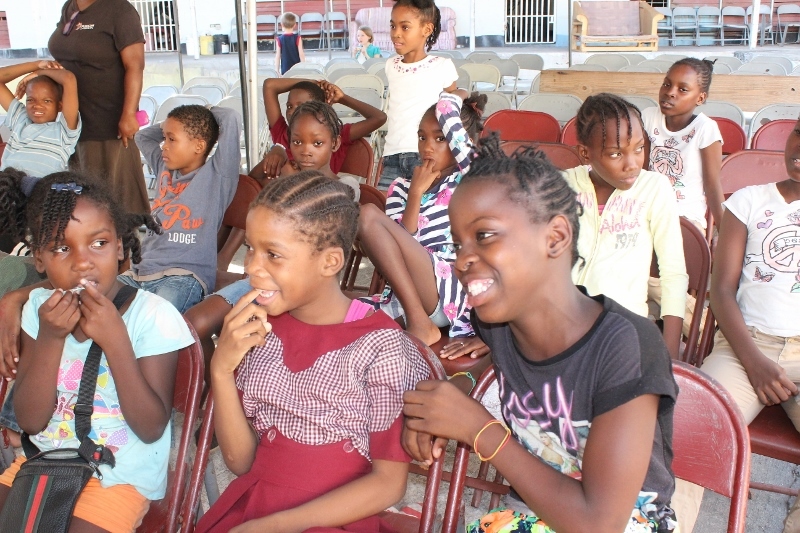“Sir – she come home!”
As Shani (not her real name) arrived at club she said these words, and her face shone with joy, satisfaction, and relief. Her face had worn a very different expression a week earlier.
During the games she had been withdrawn and could only manage a forced smile, during the integration activities she was quiet and barely participated, and during the discussion time she sat completely silent – not wanting to contribute even when she was asked to directly. Something was clearly affecting her but none of the leaders knew what it was.
At the end of the evening we asked if anyone wanted prayer for anything, Shani sat silent again but her eyes welled up with tears. When the other children were getting their snacks and water at the end she came up to me and asked for prayer. We stood to one side with one of the female leaders and gave her the space to explain.
She wanted prayer because her mother was in jail, and the court date was the following day. I have no idea why the mother was in jail, because neither does Shani, but we prayed, she cried some more, and then she collected herself and went home.
I have a sense that Shani had been praying desperately about this for a few days, alone, but the ‘uncles and aunties’ at club just gave her the opportunity to share the need, and the act of prayer, with people who cared.
I also have no idea of the story behind the answer to those prayers, but I do know that the first words out of Shani’s mouth as she arrived at club this week were: “Sir, she come home!” A major shake up in her world had settled down again and the sense of peace this had restored to her showed in an irrepressible smile.
Ultimately that is all the our work is about – to make sure that disenfranchised children with chaotic circumstances in their lives (and some chaotic behaviour as a result sometimes) have a few stable and healthy relationships with leaders who care, some ‘uncles and aunties’ to talk to when there is a need.


Recent Comments